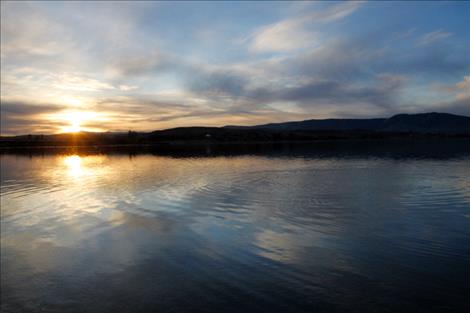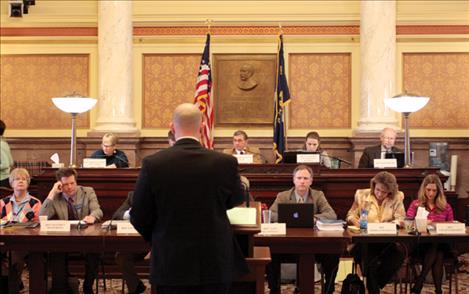Water compact passes House, flows to governor, Congress
Hey savvy news reader! Thanks for choosing local.
You are now reading
1 of 3 free articles.
HELENA – Governor Steve Bullock promised to sign the Confederated Salish and Kootenai Water Compact last week after a days-long intense back and forth between Democrats and Republican leadership in bringing the legislation to the floor of the Montana House of Representatives, where it prevailed with by a narrow 53-47 margin.
The $55 million compact will settle water rights for the Confederated Salish and Kootenai Tribes that otherwise would have ended up being litigated in the Montana Water Court. The Tribes said they intended to file as many as 10,000 claims in the court in basins across the state if the compact was not signed by a state-imposed June 30 deadline. The compact limits the Tribes’ water claims to west of the continental divide, with most stream rights being shared by the state. It also sets out a water management system for future water appropriation within the boundaries of the Flathead Reservation, and fills a legal vacuum that has existed for wells on the reservation since the 1990s.
“Today’s vote by the House shows that when elected leaders put partisanship aside, they can tackle the biggest issues facing our state,” Bullock said in a statement. “The Compact affirms tribal treaty rights, while protecting farms and ranches today and for generations; it creates new sources of water for irrigators, avoids the uncertainty that decades of litigation would cause, and provides critical jobs and economic opportunities for the state. I look forward to signing this bill into law soon.”
The final push to bring the Compact to a vote required two appeals by the House Democrats that earmarked the bills as one of their six “silver bullet” bills designated to each party this session if a bill fails to make it out of committee, but the party feels it deserves a vote on the House floor. Speaker of the House Austin Knudsen denied the move by Democrats, but the bill eventually made it to the floor, where a slew of amendments were proposed by Republicans, none of which passed. The five-hour debate had legislators on both sides teary-eyed in the bitter battle that culminated after more than a decade of negotiation. Most arguments centered on whether or not the compact was constitutional.
Ronan Republican Representative Dan Salomon, who served on the state committee that helped negotiate the compact, said many, many lawyers from the state, federal and tribal government analyzed the document to make sure it was kosher.
“The amount of people who have looked at this from the legal side is amazing,” Salomon said. “Everyone of them has looked at every word that went into this bill. I have full confidence when the attorney general states in writing that there is nothing wrong with this. He knows what he is talking about.”
Because the compact is an agreement between the federal, state and tribal government, bill supporters stressed that amendments would likely have killed it.
Some compact opponents doubted passing the bill would keep the issue from being battled out in court.
“We’ve been sold this compact because if we don’t approve it there will be litigation,” Bozeman Republican Art Wittich said. “Well I’m here to tell you there’s going to be litigation, no matter what you do today.”
The bill now heads to the United States Congress for approval and appropriation. Other tribal water compacts have languished once they reached this phase in the past, and sat for years without action, making it uncertain if or when the U.S. government might consider it.
If the federal government does give the bill the OK, the Confederated Salish and Kootenai Tribes will be the last entity that has to ratify it.

















